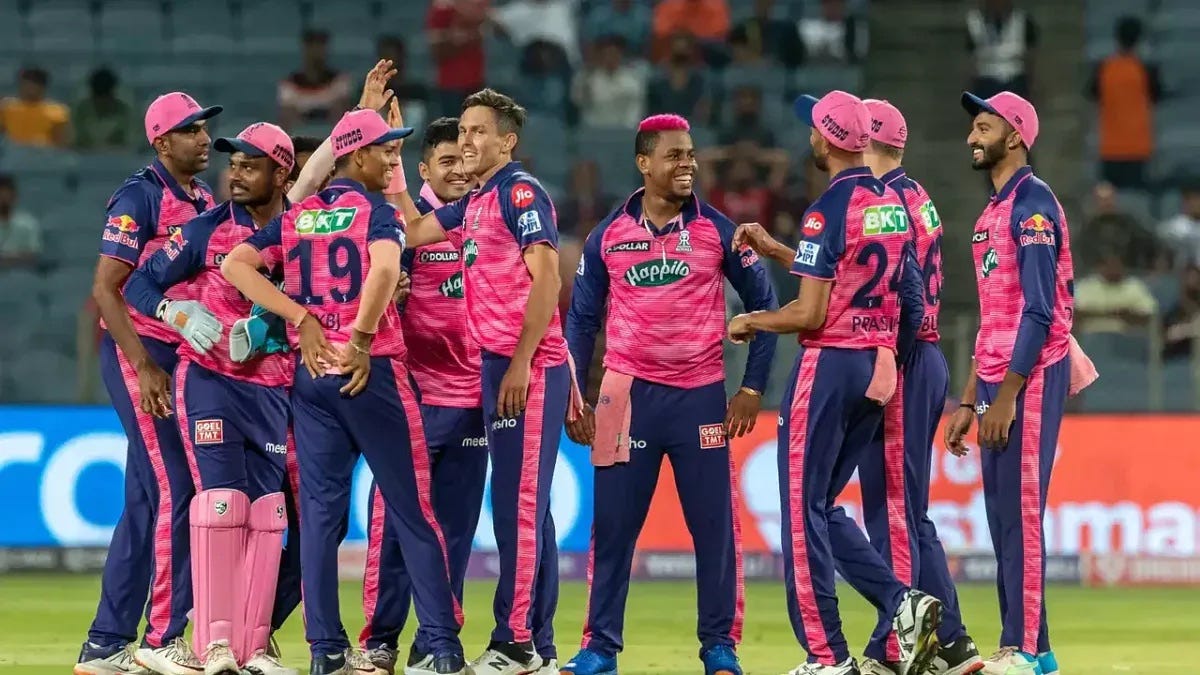Like the passing of an old friend following a long battle against terminal illness, the publication of the ICC’s Future Tours Programme until 2027 was no less sad for the fact that it was expected and inevitable. At least, perhaps, some of you may have had the shock of the news softened by this column a couple of months ago.
A brief period of mourning seems appropriate for those who enjoy Test cricket and a longer period would be understandable for those who love it. But hoping for a return to the days of 10 or 12 Tests per year is forlorn and naieve. South Africa will never, ever play that much Test cricket again. They will play the bare minimum required to remain part of the World Test Championship and, for Test lovers, the greatest hope is that the WTC remains intact beyond 2027.
The West Indies are within a few dollars of relinquishing their Test status while New Zealand and Sri Lanka would be far better off financially without it. Like them, South Africa loses millions of dollars hosting Test cricket against the majority of its opponents only making money when India and England tour. Even then, the revenue generated by white-ball games against those opponents is between five and ten times greater than a Test match.
When Graeme Smith told Sky Sports during the Lord’s Test that there “…might be only six countries playing Test cricket in the near future” he was not exaggerating. Why would he? As commissioner of South Africa’s new T20 league (when will it be named?) he has material reason to stress its relevance but his reputation was built on his Test achievements as a player and there can be no doubt that the squeeze on the format hurts him.
But the game is what it is and, whether or not you believe it to be on a commercial roller-coaster with unsteady, untested bearings, there is no choice but to remain on-board. There will be crashes, of that there is no doubt. And they will hurt. CSA’s deal to become a mini-IPL at least ensures their crashes will be emotionally and physically bruising rather than fatal.
Not quite out of the woods yet but a clear light at the end of the T20 tunnel? No. Far from it. Only small pieces of sh*t have hit the fan so far. This is just one, small example. There will be many, more acrimonious problems involving national ‘loyalty’.
Sometime in early February there is an ODI series scheduled between SA and England, part of the World Cup Super League which CSA has already discredited by declining to fulfil its commitment to play a three-match series in Australia in mid-January. But they would like to play this one because it will be profitable.
All efforts to postpone the series by a week, until after the play-offs and final of the ‘new league’, have so far been unsuccessful. Not through a lack of effort or desire from CSA and the ECB. Both are desperate to avoid a situation in which their best players are faced with a choice of domestic semi-finals, and a final, or ODIs for their country, at half the price. Or less.
Jos Buttler is being paid $500k by the Paarl Royals. Should they make the play-offs he will be asked to choose between captaining a largely irrelevant ODI series for England or the Royals Franchise. And it’s not just about the immediate cash – close to $50k per game. It’s about the long-term investment the Rajasthan Royals have made in him. “Jos, it’s not about today, or this week, it's about the next three years. You sure you want to walk away?”
What about the South African ‘marquee’ players involved in the new T20 league? They are under contract to CSA and will, presumably, be asked to play in the ODIs against England. For them, $30k per game is far more significant than it is for the England players. So, it is in both national board’s interests to move their bilateral fixtures. But they can’t. England are due in New Zealand barely 48 hours after their commitments in South Africa.
The notion that international, bilateral cricket can co-exist with domestic T20 leagues and ICC events is well-intentioned but fanciful. In a contest between money and common-sense, it is common-sense to put your money on the money. And in a contest between big money and smaller money, it is common-sense to put your money on the big money.
Buttler is captain of England’s white-ball teams and the best T20 batter in the world. That status may only last for another year, a little more, a little less. His immensely lucrative relationship with the Rajastahn Royals can be guaranteed for three or five years. As in other sports, emotion and sentiment are being stripped from cricket every day.
Don’t just hope for the survival of the World Test Championship, pray for it. Don’t bemoan South Africa’s laid-bare Test programme, be thankful for it. It’s never going to get better and the next step is none at all. Maybe the odd exhibition Test, a ‘living history’ show. But this sad itinerary is the future, at its best.





Steven, that's a very good analogy. I'm sure we're not alone in having enjoyed Super 10 and Super 12, maybe evem Super 14 (!) but after that it became impossible. I've asked the question several times, even in a few of these columns - what research has been done and what evidence is there to suggest that all these T20 leagues are sustainable? How could the ICC member nations possibly think that a six-team league in the UAE with a dozen internationals per squad was a good idea? Unsurprisingly, the only vote against the ILT20 came from the West Indies...there won't be any professional cricketers left in the Caribbean soon.
Why bother with test cricket, this is akin to kids going to film school, learning about the wonder and beautiful film that actual film stock gives them, but they will never use it, they will use the wonderful non linear editing thing called a LUT, or a LOG table value...
2 3 4 5 day games are vital to the game of cricket, it teaches and instills a passion for the art of cricket, from how to captain through all phases of the game, it teaches patience and perseverance, discipline and sheer bloodymindeness..
Mr Smith, Graeme to his mom, I am sure would not have the courage or the acumen to take on his role in the destruction of cricket without having been forged through test cricket.. Maybe he hates the format, possibly, this would explain CSA giving up on the format..
CSA only lose "millions" as through sheer incompetence and greed, the previous generations of "boards" let the game become run down, they never saw the true value of the game, they never fought for it, and there are folks that are extremely passionate about the 2 3 4 5 day format...
This last test match, done an dusted in 2 days, disgusting, no one can be proud of that, but a win is a win I guess, how can anyone be proud of a game that lasted barely 200 overs, all over within 2 days, including a long stoppage due to rain...England really had no interest in the game...
It is sad that no one will ever enjoy a captain's knock of 250 to win a test, of batting with a number 9, or the Jack of the team..of last hour heroics in the fading light, in the drizzle, trying to hard to avoid a series loss, of an incredible last innings win..
T20 and ODi have turned the game, into something perverse, I wonder how many true supporters will continue to enjoy the game, there are way too many leagues, too many games, results are for the most part irrelevent.. I have no idea for example about the Springboks, who plays, who wins, mostly as I don't watch, so what is the point of investing interest in something I cannot enjoy???
In the end, with the lack of broadcasting on available free to air/youtube, cheap streaming services, the names become pointless, I have lost all not respect, lost a sense of knowing, of caring, which is sad, but what is alarming is that cricket, rugby, F1, netball, rely on sponsors, of brands using the event to promote their brand, so the blackout 90% of the audience for no other reason than greed, makes no sense.. The ad spend, the increased rates if you as the broadcaster can prove your increased audience numbers, would more than cover the costs of broadcasting the event... At what point does a product cease to have value? The custard slice example, when does this custard slice R21.99 become R0.00? One obvious answer, once the shop closes for the night...
So if you have a game that say last 4 hours, and you let someone broadcast the game 2 hours after you start, then has your product lost value? If you shared the costs of broadcast rights, 2/3 to 1/3, as you as the primary rely on live, and the 1/3 shareholder on delayed, then what is the problem? Supersport is about the now, the live, the instant it happens, they see no value in delayed broadcasting. The value for them is in the now, the right now, as it happens LIVE.. Delayed 2 hours when everyone already knows the result cheapens the broadcast to what $0.00???